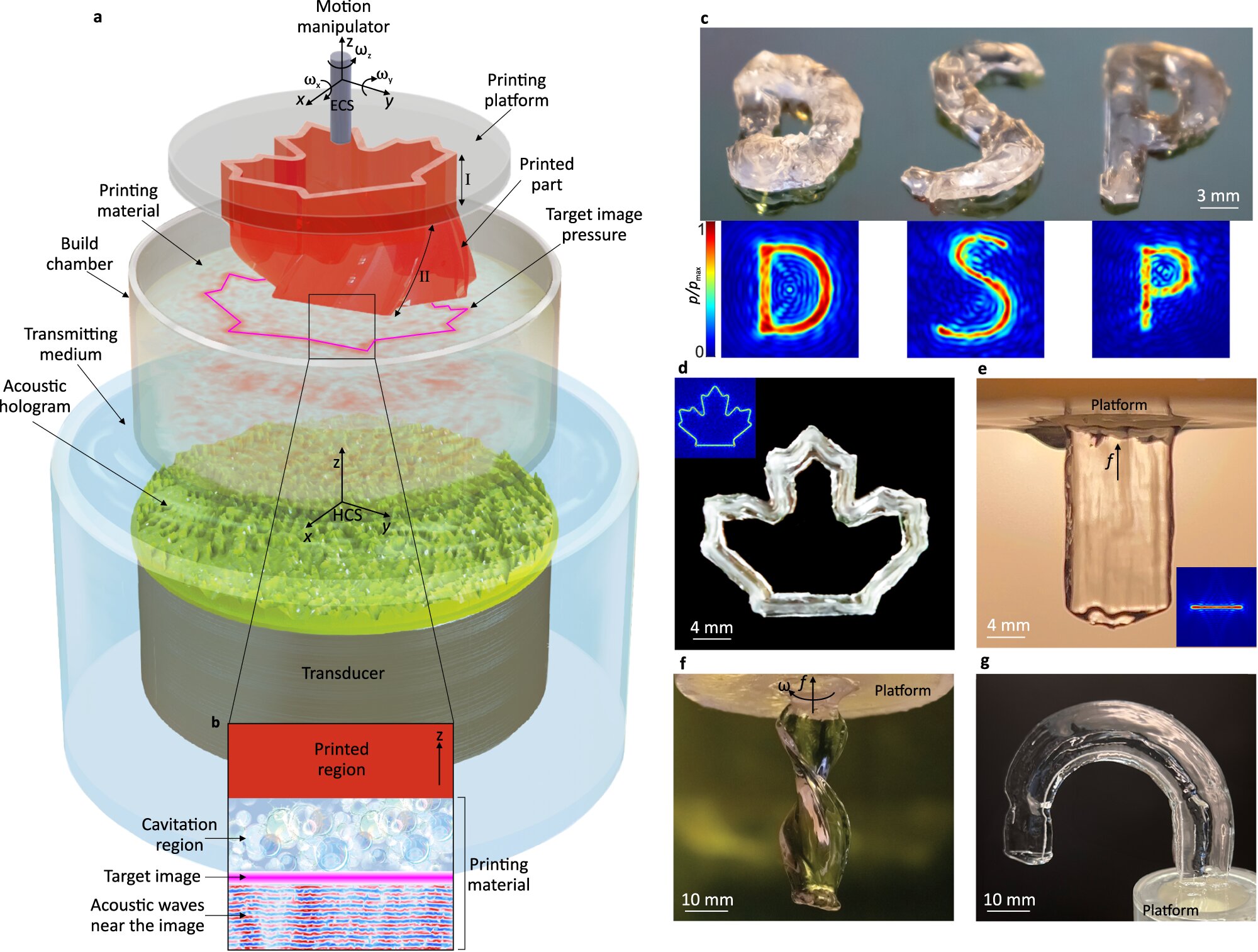The process, called holographic direct sound printing (HDSP), is described in a recent article in the journal Nature Communications. It builds on a method introduced in 2022 that described how sonochemical reactions in microscopic cavitations regions—tiny bubbles—create extremely high temperatures and pressure for trillionths of a second to harden resin into complex patterns.
Now, by embedding the technique in acoustic holograms that contain cross-sectional images of a particular design, polymerization occurs much more quickly. It can create objects simultaneously rather than voxel-by-voxel.
Hadn’t heard of this before. It seems similar to conventional resin printers, but uses sound instead of light to cure the resin?
He adds that, as soundwaves can penetrate opaque surfaces, HSDP can be used to print inside a body or behind solid material. This can be helpful in repairing damaged organs or delicate parts located deep within an airplane.
Seems like this would have some niche but powerful applications.
Could I trouble someone to give an ELI5 for this?
I don’t understand any of it so I’m curious what makes it so desirable.
It’s a thing that can focus intense ultrasound on a specific, programmable region. Really intense ultrasound can create bubbles that get very hot as they shrink and expand, and apparently you can use this to initiate polymerisation. Put the two together, and you can make a 3D printer.
Desirability is due to the fact that it’s faster than printing with a single moving focus point, and sound can travel through things light or a physical printhead cannot, like a living person during surgery. Whether it actually pans out depends on all kinds of practical implementation details, but they make strong-sounding claims in the abstract of the paper.
WHOA, is this as significant and revolutionary as it looks, 3d printer people?
Depends on all kinds of things that weren’t in the article. In most cases, resin printers already exist, but this could potentially be a better version of them. The part where sound can go through solid objects sounds very interesting in niche settings like surgery.
I saw something similar to this but UV light, maybe laser based? But the idea was to cure the entire piece at once as the vat of resin rotated. Totally exciting tech.




